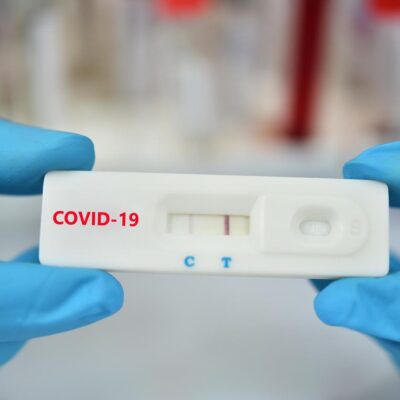There is evidence from various studies indicating the potential benefits of acupuncture in alleviating asthma symptoms. However, it is important to note that many of these studies have limitations in terms of their quality, which could affect the reliability of their findings.
A recent meta-analysis conducted in 2021 examined 11 previous trials and concluded that acupuncture might have a positive impact on symptoms like coughing. Nevertheless, further research is required to establish the effectiveness and confirm the efficacy of acupuncture as a treatment for asthma.
While acupuncture and other alternative therapies can complement an individual’s treatment plan, it is crucial to understand that they should not be considered as complete replacements for medications such as rescue inhalers. Asthma is a potentially life-threatening condition, so it is essential for individuals to have access to necessary medication even if their symptoms show improvement.
Can acupuncture help with asthma?
Acupressure, originating from Traditional Chinese Medicine (TCM), utilizes pressure application on specific body points to stimulate healing and alleviate symptoms, without the use of needles.
There is limited research specifically focused on acupressure for asthma. A review conducted in 2017 failed to draw reliable conclusions about the effects of acupressure on asthma or hay fever symptoms. The authors noted the scarcity of available trials and stressed the need for more extensive studies to validate its effectiveness.
Nevertheless, acupressure is considered a safe and low-risk approach suitable for most individuals. Those interested in exploring acupressure as a potential remedy for asthma can seek guidance from qualified TCM practitioners who can provide instructions on how to try it.
Benefits and limitations
Possible benefits of acupuncture for asthma include:
- Reduction of symptoms: Acupuncture has shown potential in easing asthma symptoms such as wheezing, coughing, shortness of breath, and chest tightness, according to trusted sources.
- Adjunctive therapy: Acupuncture can be used as a complementary therapy alongside conventional asthma treatments. Integrating acupuncture into an overall asthma management plan may enhance symptom control and improve quality of life.
- Individualized treatment: Acupuncture practitioners personalize treatment plans to address specific symptoms, underlying imbalances, and individual needs. This individualized approach offers a more holistic perspective on managing asthma.
- Low risk: Acupuncture is generally considered a low-risk therapy with rare occurrence of adverse effects, according to trusted sources.
However, it is important to consider the limitations of acupuncture in asthma management:
- Asthma attacks: Acupuncture should not be used as a substitute for immediate medical intervention during an acute asthma attack. It is crucial for individuals to follow their asthma action plan, which may involve using rescue inhalers and seeking prompt medical attention.
- Limited consistent evidence: While some studies suggest potential benefits, the overall scientific evidence supporting the effectiveness of acupuncture in asthma management is limited and has yielded mixed results.
- Individual variation: The response to acupuncture may vary among individuals. While some people may experience significant improvements in symptoms, others may see little to no effect.
Acupuncture points for asthma
Acupuncture points are located along pathways called meridians, and each meridian corresponds to a specific area of the body.
In the case of asthma, two main meridians are relevant: the lung meridian and the heart meridian, according to trusted sources. The lung meridian extends from the upper central chest to the tip of the thumb, following the upper side of the arm.
The lung meridian comprises a total of 11 acupuncture points, among which Chi Ze (LU5), situated on the inner part of the elbow, is particularly associated with respiratory health.
On the other hand, the heart meridian travels from the armpit to the tip of the little finger, following the lower side of the arm. It consists of nine acupuncture points.
How many sessions do I need?
The number of acupuncture sessions required for asthma relief can vary among individuals. While some individuals may experience improvements quickly, others may require a greater number of sessions or ongoing treatment. It is important to note that acupuncture may not be effective for everyone with asthma.
According to a study conducted in 2020, a common approach in clinical studies involved administering one acupuncture session per week for a duration of 6 weeks, which often yielded positive results. Most previous studies on acupuncture for asthma management have utilized no more than 15 treatment sessions.
Does acupuncture have side effects?
Acupuncture, when administered by a qualified practitioner, is generally considered a safe treatment option. Previous research indicates that serious side effects are rare, as supported by trusted sources. However, it’s important to note that there can be some side effects associated with the needle insertion points, which may include pain, bleeding, swelling, and skin reactions.

In addition, there are potential side effects that can occur, such as pain at distant sites, temporary worsening of symptoms, changes in digestion, and sleep disturbances. It’s essential for individuals to communicate any concerns or adverse reactions they experience during or after acupuncture sessions with their practitioner.
When to seek help
While acupuncture may provide potential benefits for managing asthma, it is crucial for individuals to seek medical advice in certain circumstances.
For instance, if a person’s asthma symptoms worsen despite following their prescribed treatment, it is important to consult with a doctor. This is also true if the symptoms become more frequent or severe, interfering with daily activities and impacting sleep or overall quality of life.
Moreover, individuals with questions about their asthma management, available treatment options, or the potential role of acupuncture should reach out to a doctor. A healthcare professional can offer personalized advice, address concerns, and assist individuals in making informed decisions regarding their asthma care.
Summary
Several studies suggest that acupuncture may help alleviate asthma symptoms and reduce immune system response. However, it is important to note that many of these studies are small or of low quality, and the findings are not always consistent. Further trials involving larger groups of people with asthma are needed to establish the reliability of acupuncture in asthma management.
In general, acupuncture is considered a safe procedure when performed by a qualified professional. Nevertheless, it is recommended that individuals consult with a doctor before trying acupuncture to assess how it can be integrated into their overall asthma treatment plan.









